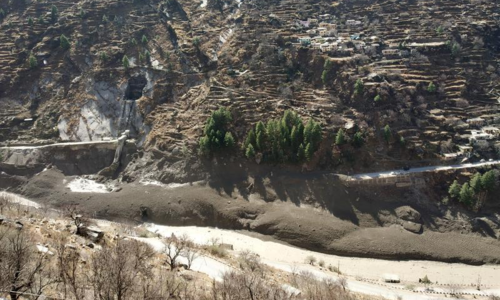MUMBAI: The death toll from flooding and landslides triggered by heavy monsoon rains in India climbed to 127 on Sunday, officials said, with rescuers searching for dozens more missing.
The country’s western coast has been inundated by torrential rains since Thursday, with the India Meteorological Department warning of further downpours over the next few days.
Flooding and landslides are common during India’s treacherous monsoon season, which also often sees poorly constructed buildings buckle after days of non-stop rain.
Experts say climate change has caused the annual deluge to increase in frequency and intensity.
In Maharashtra state, 117 people have been killed, including more than 40 in a large landslide that hit the hillside village of Taliye some 250 kilometres southeast of Mumbai on Thursday.
Villager Jayram Mahaske, whose relatives remained trapped, said that “many people were washed away as they were trying to run away” from the landslide.
Another villager, Govind Malusare, said his nephew’s body had been found after the landslide hit his family’s home, but that his mother, brother, sister-in-law and niece were still missing.
The landslip flattened dozens of homes in a matter of minutes, leaving just two concrete structures standing and cutting off power, local residents said.
In Posare village, 210km south of Mumbai, the National Disaster Response Force said four bodies were found overnight. In parts of Chiplun, water levels rose to nearly 20 feet on Thursday after 24 hours of uninterrupted rain. The water levels have since started to recede.
Published in Dawn, July 26th, 2021
















































